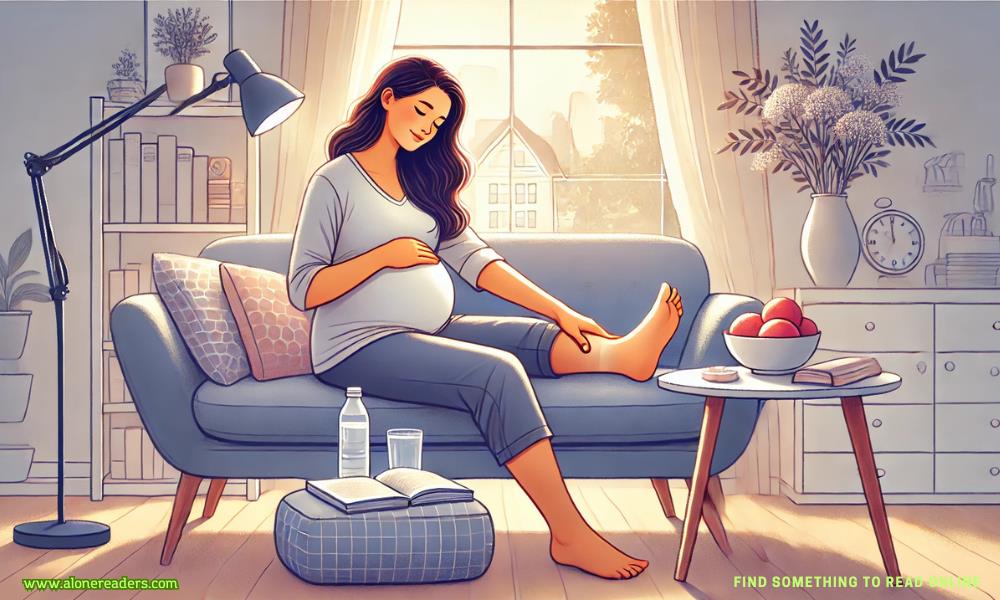Page 10 of Unleashed
I wiggled on the bench, my left butt-cheek going numb from sitting too long in the same position. Officially, the Aces had assigned us a cramped conference room with stiff chairs and worse lighting. Unofficially, I worked wherever I could find a halfway decent signal and a place to sit.
Or a hard-as-granite bench that my butt would probably never recover from.
I wiggled again, but the bench didn’t get any softer. With a sigh, I sat my travel mug down beside me and pried open my laptop. Adele swore the thing would eventually fuse with my arm. “Just get a tablet like a normal person,” she’d said last week, right before proposing we film the players doing trending TikTok dances in full gear. “It’d be a riot!” I’d nixed that idea, but not without acknowledging that she could have convinced at least some of the guys to go along with her hare-brained ideas.
I opened my notes document. This morning’s practice yielded an interesting tidbit—an offhand remark from my interview with Jabari Flint that stuck with me. He’d worked for the Aces the organization for years, starting out as one of the equipment guys before earning a degree in athletic training.
The trainer’s insights over the season painted vivid pictures of the team dynamics, delivered with his megawatt smile and zero agenda. His perspective gave our raw footage heart. Showed the human beings beneath the jerseys.
So when I asked about playoff prep, I expected his usual level-headed take. Everyone else in this building had already gone off the rails. I couldn’t cross the dining room without hearing the kitchen staff arguing about power play formations. The front office had a full-blown bracket taped to the copier, complete with odds on beard growth. Even the maintenance crew was trading stats in the hallway, convinced the Aces could steamroll Chicago in the first round.
Playoff fever infected every corner of this 70,000 square foot hockey shrine. And they looked at me like I was the crazy one!
My last project had been up for three Emmys. I understood anticipation. But this? This was next level fanaticism.
“He’s a warrior.” The trainer’s voice dropped to a reverent whisper when I asked about Viggy. “The things he’s played through…you wouldn’t believe it.”
“Like what?” I leaned closer, my nosy storyteller curiosity on high alert.
“You know he played game seven back in ‘21 with broken ribs? A punctured lung?”
I winced. I’d heard about Viggy’s injuries, but hearing confirmation from someone who’d witnessed the game made the story more real. “How is that possible? Let alone legal?”
“Legal?” Jabari shrugged, eyes wide. “Debatable. But you have to understand the adrenaline and focus that come with playing these high stakes games. Guys like Viggy? They block it all out. The world narrows down to the ice, the puck and the next goal. Nothing else matters.”
Lines etched into his brow. My fingers tightened around my recorder. To play through that kind of pain? Unimaginable.
“He must have felt something,” the trainer continued, his gaze drifting back to where Viggy ran solo, puck-handling in the far corner of the rink. “Hehadto have feltsomething, right? But with his drive, that warrior mindset, I guess he was able to block the pain out. Until medical took him to the hospital.”
A wry smile twisted his lips, admiration warring with something darker. “He never let on. Not a word until we had the game in the bag, and the buzzer sounded on a win. He’s the best captain I’ve ever seen, but the man plays by his own rules.”
A sharp crack shattered the memory. Through the plexi, Viggy’s slap shot veered wide—too wide for a guy who could usually thread a puck through traffic with his eyes closed. His jaw tensed, and even from up here, I could picture the muscle jumping along the edge. That micro-shift. The kind actors spend hours trying to mimic, chasing authenticity in trailer mirrors under bad lighting. Viggy didn’t need rehearsal. The pain was real. Controlled, but not as hidden as he might hope.
He'd worn the same expression when he disappeared behind the food truck up at Lady Bird Lake.
My thumb tapped against my wrist.
The limp I’d caught that day—barely there, quick as a blink—clicked into focus. Not something I saw at the rink. Not something he let the team see. But I’d seen it. The weight shift. The off-balance favoring of one leg, smoothed over before anyone else could notice. And then Jabari’s voice, tight and cautious, looping back in.
Jack was hurt. Playing through something serious. The kind of career-defining injury that could make or break my show—and my heart squeezed at how easily my mind had gone there first. To ratings, instead of the man.
His hostility when I’d pushed for details made brutal sense now. Jabari’s stories of past injuries painted a picture of a warrior who’d sacrifice everything for his team. A man who’d rather let his body break than show weakness. The man played through punctured lungs and cracked ribs, chose breaking over bending every time. He guarded his vulnerability like a dragon guarded gold.
And God help me, my producer brain lit up at the story potential. Jack’s career was the stuff of legends. Sports networks would salivate at the idea of telling his story—the kind of story that could deliver the knockout ratings Malone demanded. But if Viggy shut me out, blocked me like he had all season, the episode would crater. Sure, I could cobble together teammate interviews, weave in commentary from rival players, but it wouldn’t be the same. Far from it.
My stomach clenched as Sydney’s betrayal crashed through my memories. How my former assistant had ripped off my concepts, branded me a fraud, then watched me spiral into professional exile with a smile on her perfectly glossed lips. My fingers dug into my wrist, pressing hard enough to leave marks as the past threatened to drown me.
Three years of having my name whispered in production meetings like a cautionary tale, of watching lesser talent claim the opportunities I’d earned, of dying inside every time I had to explain the “gap in my resume” only to be turned down for the job again and again.
Memories flashed in my mind’s eye. Industry leaders turning their backs on me, emails going unanswered, colleagues avoiding me—the barrage was burned into my subconscious, never to be forgotten. Humiliation, embarrassment, confusion.Desperation. I’d clawed my way back from career death, done the impossible by getting any kind of show at all. I couldn’t afford to deliver anything less than excellence.
But I understood Viggy’s resistance. He hated even the idea of being in the spotlight. He’d see the show as exactly what he despised aboutAces Unleashedalready—manufactured drama packaged for mass consumption.
A player’s laugh echoed up from the tunnel to my left, bouncing off concrete walls before dying in the cavernous practice space. I shifted on the hard bench seat, tucking one leg beneath me as I glanced around. A couple of players and staff clustered near the rink entrance, their voices a distant hum of speculation and strategy. None close enough to see my screen, which suited me fine.
I popped in my earbuds and pulled up today’s footage. We had cameras in the training room and the locker room, strategically angled to respect privacy around areas like the showers. Some of our best material came from these casual moments when players forgot about the recording equipment. Their unfiltered conversations frequently yielded pure gold for the show.
I doubled the playback speed, zooming through the footage. Adam Riley came into view. He was in the locker room, hovering over the bench beside Viggy, his usual puppy-dog energy muted to something more watchful.
- The Master by M.S. Parker
- The Boss by M.S. Parker
- Unmasked Prophecy by Bella Jewel
- Savage Daddies by Liz Archer
- Mafia Daddy's Girl by Lena Little
- The Duke's Virgin by M.S. Parker
- Saved by Him by M.S. Parker
- Pleasure Island by M.S. Parker
- Delicious by Charlie Novak
- SEAL's Temptation by Makenna Jameison
- Beautiful Venom by Rina Kent
- King of Envy by Ana Huang
- Craving Francesca by Nicole Jacquelyn
- The Menagerie by J.P. Caruso
- Lies Beneath Secrets by Joy Blood
- Wraith by Joy Blood







